Welcome to the 2020s!
“Three things are true at the same time. The world is much better, the world is awful, the world can be much better.”
Max Roser, Oxford University
We asked members of the Tällberg community to define their fears, their hopes and their expectations for the new decade. Not predictions, as much as imaginations. What might this new decade bring?
We offer an edited selection of their answers, and invite you to tell us what you think. Are you an optimist, a worried optimist, a pessimist who refuses to give up, or a pessimist?
What do you think the new decade will bring?
Leave a comment at the bottom of the page
Defne Ayas
Visual arts curator, educator, and publisher; Turkey and The Netherlands
elifdefneayas@gmail.com
What scares me?
Debilitated EU and Germany
Rise of more authoritarian populisms and nuclear games
Gulf Stream reversing…
Lack of fish and future of oceans (and plastic in sea salt!)
Climate apartheid
Ecocides
Future of feminism
You say China!
I say probably, plus antibiotic-resistant outbreaks due to China’s intensive farming that generates superbugs at an accelerated rate.
But I am hopeful about the future of medicine, cures, all startups in science, nuclear batteries, Vatican.
Antonella Battaglini
Founder and CEO of the Renewables Grid Initiative (RGI) in Berlin; Germany
antonella@renewables-grid.eu
I am torn between despair and optimism. Too early for humans to change their way of living; too late, maybe, to avoid the worst.
I fear most war and destruction, to protect what we have against those who have nothing or have lost everything or will lose everything. The wars of the poor, or maybe the “battle of the have nots.”
I have lot of hope that climate change is not only the biggest threat to humanity but also the biggest opportunity to change and discover new values and new gods (beyond money and power).
2030 will be what we make out of it. We have 10 years of very hard work; this is needed, urgent and essential to steer our way. Everything matters and we can make it matter.
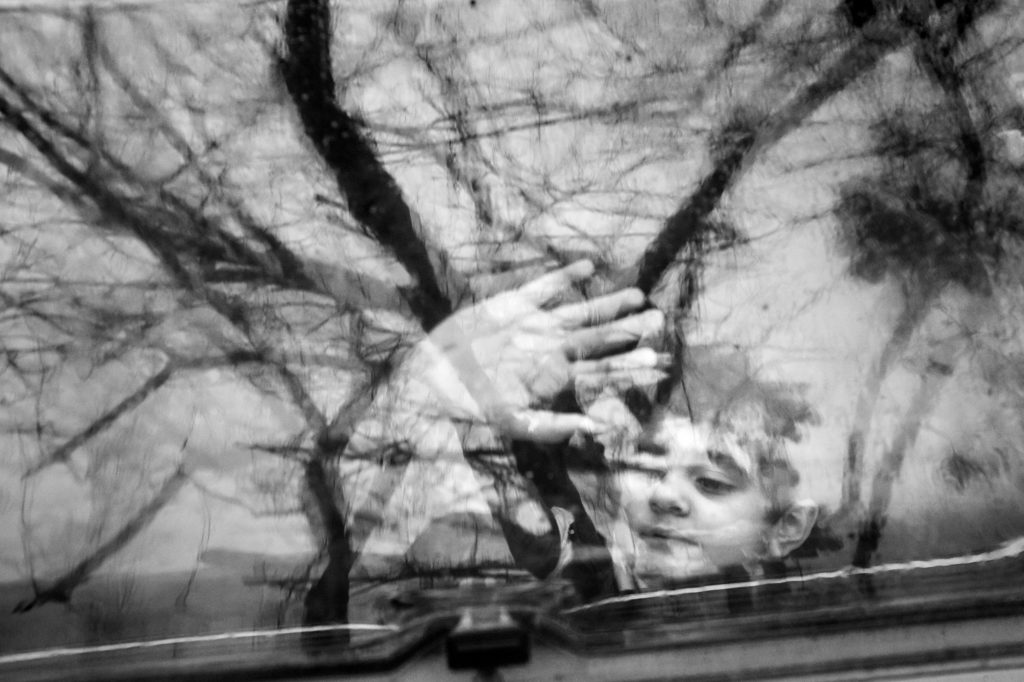
A young refugee at Grande Synthe camp, France, February 2016. ©Fabio Bucciarelli
Gabriela Cuevas
Senator of the Mexican Republic and President of the Inter-Parliamentary Union; Mexico
gabrielacuevasbarron@hotmail.com
By 2030 the odds now indicate that most of the planet will not have reached the Sustainable Development Goals, that global warming will continue, that the population will grow in the poorest regions and that there is not yet an alternative economic model that allows for a better redistribution of wealth.
New challenges will arise in which nationalism are increasingly exacerbated, terrorist attacks have seals of different ideologies, and authoritarian and populist governments become more frequent in the absence of democratic and liberal leadership.
By 2030 a new generation will have to define what work means in the face of millions of jobs that will have been lost to automation and robotization. The ethical challenges of science will put human beings face to face with cloning and artificial intelligence, education systems, health, pensions, and in general, all social security will have to be redesigned in the front of changes in production models.
Whether due to conflicts, economic situation or climate change, the forced displacement of people will continue to be one of the world’s most significant concerns. The reactions of the governments of developed countries will not change; in any case, they will only accept immigrants to make up for their own declining populations. Some islands, like Tuvalu, will begin to experience more frequently the ravages of climate change, and some latitudes, like Australia and Japan, will suffer higher temperatures that will force more and more migrations.
In the face of all this, I am worried about the unconsciousness of my generation and the indifference of some millennials. I hope the youth, a more informed generation, anxious and willing to act, can change the course of history.
Vishakha Desai
Senior Advisor for Global Affairs to the President of Columbia University and Senior Research Scholar at the School of International and Public Affairs, Columbia University; USA
vd2278@columbia.edu
One could say that the last decade was about the retreat of economic globalization and the rising of political nationalism that began to divide the world into ‘US vs. Them.’ However, despite divisions and retreat of global trade, the world continued to hurl toward interdependence and interconnections.
As I look ahead with the memory of the rear view still alive, I feel that we will see some course corrections: we need to make changes to atone for the excesses that resulted from unfettered, extractive tendencies of the leaders of economic globalization and pay attention to those who felt disfranchised by big global players. The looming climate crisis and the continuing migration of people know no national boundaries. That fact will require that we learn to come together as a global community to address the issue for the future of our children and grandchildren. They demand this of us and most likely, they will lead us toward cooperation, whether we like it or not.
Ultimately, we will have to learn to engage local, national and global realities simultaneously. It’s my hope that we will begin the process in this new decade. Enough of “US versus Them!” It’s time to create more “US” by enlarging the tent. The future of the eight billion strangers living cheek by jowl, physically or virtually, depends on it.
Paula di Perna
Policy advisor and author focused on global environmental and philanthropic policy issues; USA
Paula.DiPerna@cdp.net
Climate change and extreme weather events establish themselves as a new environmental norm. No financial indemnification for immediate victims is possible; nor is environmental restoration. In short, environmental catastrophes no longer can be mediated by existing financial or disaster relief resources, creating a large pool of people worldwide left to their own devices. This is due to generalized failure of what I call the “three i’s–insurance, indemnification and infrastructure.” None will be able to keep up with likely climate science trends.
Jobless growth and displacement of workers continue to undermine the public’s belief in the nation state, heightening appeal of clan government and a return to a form of tribalism.
Representational democracy is no longer the ideal form of government to which most of the world’s people aspire.
More people know less in general because the business model of the internet increasingly depends on inbred information packaging, i.e., advertising that depends on customizing of information to meet pre-existing preferences and habits of users.
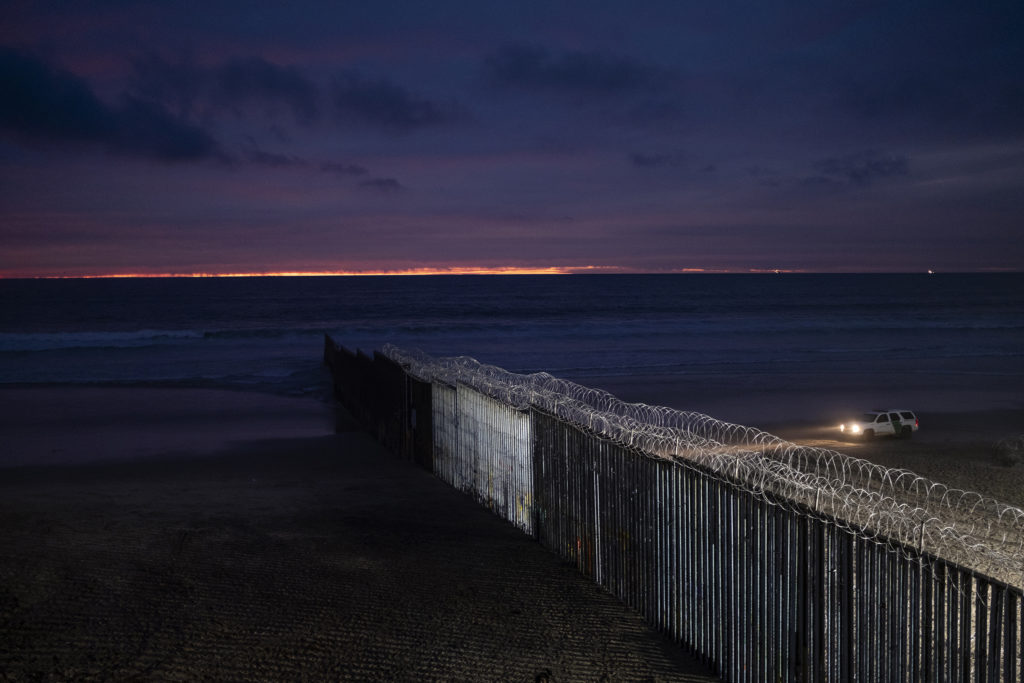
The US-Mexico border wall, December 2018, Mexico. ©Fabio Bucciarelli
Jan Eliasson
Former Deputy Secretary-General of the United Nations; Sweden
info@tallbergfoundation.org
Worst case
The authoritarian and extreme populist leadership are in government positions in a majority of the world’s nations. Xenophobic and protectionist policies are thriving. The curve for CO2 emissions has not bent downwards. Huge loss of biodiversity and extreme meteorological conditions prevail across the planet.
The United States and the world are still recovering from President Trump’s second term. The Republican Party is slowly replacing the Trump machine. The world is rebuilding large parts of the wider Middle East after several ravishing wars.
Newspapers and traditional media have ceased to exist. Social media dominates the communication sector, erasing the border line between facts and alternative facts, truth and lies.
Best case
The market economies and democratic nations have been reset in view of failures of extreme populists in power. Women and youth have vitalized societies in a remarkable way. Huge advances in technology and innovation have been made due to a global awareness and mobilization around the threat of climate change.
UN and international cooperation more generally are more and more seen in the light of enlightened self-interest—not only as the ethically right thing to do.
Saul Griffith
Founder / Principal Scientist at Otherlab; Australia/USA
saul@otherlab.com
The thing that most terrifies me about the coming decade is a continuation of the loss of trust in science and engineering as sources for the betterment of society. Long term planning about what we know to be true of the world feels like it is under attack and in decline.
Not unrelated: we have seen the professionalization of politics everywhere in the world. This worries me enormously. Too many people study law, and too many lawyers become politicians. Rather than having lawyers prosecute laws written by citizens with real life experiences, it feels like we have lawyers with no experience of the important things – agriculture, infrastructure, education, energy, healthcare – writing laws. This risk presents an opportunity, subtle changes to electoral practices that would encourage people of professional practice to enter politics such that politics would grow out of the inane tit-for-tat that is lawyers arguing with lawyers about lawmaking.
In terms of the things that I care most about, if we don’t turn the corner on climate change abruptly, it will surely run away from us with most dire consequences. This is the decade where we could lose substantial amounts of the Amazon, entire fisheries, and yet more ecosystems everywhere. This is the decade where we must come to a truce with our planet and our non-human cohabitants.
Again, this is an opportunity. No one had considered a national park 150 years ago, and then the idea was invented, and now we celebrate these places as places of enormous beauty. Hopefully we can rededicate large swaths of the planet to be the beautiful places that support life on our little spaceship.
I believe that the youth will rise up in the 2020’s globally and demand changes on many fronts. Hopefully there are older people who will support them and the new politics and economics that they usher in to solve our biggest challenges. 2030 probably won’t be as verdant as we like, but I think there is a reasonable chance the children will save us from ourselves.
Becca Heller
Director and co-founder of the International Refugee Assistance Project (IRAP); USA
bheller@refugeerights.org
I think the next ten years will more fully demonstrate the irrelevance of enforcing physical borders between nation states. People, weather and commerce will flow undeterred across international borders fueled by growth, technological development, scarcity and climate change. Challenges will be global and will require a coordinated global response. Opportunities for growth will similarly be global: groups that do not take advantage of the opportunity to leverage work across multiple geographies will be left behind. States with overly draconian policies governing who can cross their borders will similarly be left behind. Cultural competency will be an increasingly valuable currency. Inequality will increase.
And we’ll see if Winston Churchill is correct that democracy is the least-worst form of government.
Maarten Koets
Consultant, NGO executive, board member Tällberg Foundation; The Netherlands
mkoets@hotmail.com
The next 10 years will be – more or less – business as usual for politics, the economy and academia. It is borrowed time and I am more pessimistic than optimistic we will be able to make enough headway with the transformation that is required to respect the planetary boundaries or to address global problems as an international community.
For the natural environment I expect the predictions regarding climate change will prove too modest. For those countries that can afford it climate change mitigation measures will become increasingly top of mind. I would not be surprised if climate becomes a pretty radical fault line in many Western democracies; I can imagine forms of eco-violence and terrorism directed at companies and governments. It would also not surprise me if climate activism – obstructionism at international organizations, boycotts, facilitated migration – increases from countries who cannot afford the mitigation measures.
I expect the relationship between the traditional polluters and those who have emitted less will become more confrontational. This could happen even if support from the traditional polluters increases, since that support will likely fall short of what is required. There is simply too much legacy problem.
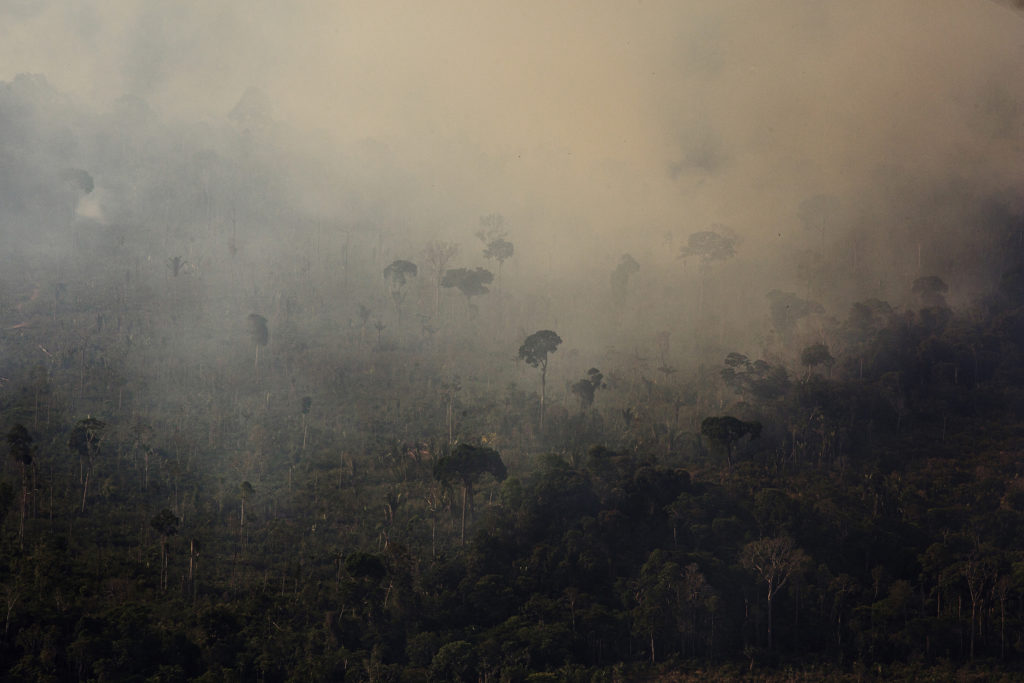
Smoke rises from a fire, the Amazon rainforest, Brazil, September 2019. ©Fabio Bucciarelli
Scott Miller
Chief Executive Officer, Core Strategy Group and Co-Founder of Sawyer/ Miller Strategic Consulting Group; USA
scott.miller@corestrategygroup.com
I believe in change. That makes me pretty comfortable with what’s ahead during the next decade.
I know that 2030 will once again show that democracy is good; more democracy is better; and a fluid conversation, both sides attentive and empathetic, is best of all.
Mike Niconchuk
Senior Researcher Beyond Conflict, Social Neuroscience and Conflict Innovation Lab, board member Tällberg Foundation; USA
mniconchuk@beyondconflictint.org
What I fear will happen:
How far will the populist pendulum swing? It seems to retract and tighten and destroy unabated.
Migrants and refugees will continue to be vilified. The global asylum system will come undone entirely, revealing the deeply racist underbelly of Europe and the West. That undoing will plunge Europe into an identity crisis—as it is in reality, quite cosmopolitan, yet those in power are largely white—which will result in more and more violent protests and distrust in the “system.”
In the United States, we will simply exist as multiple societies under a resigned capitalism. Capitalism, a potentially great thing, is America’s political ideology. Nothing else will matter—reforms that even dare touch that system will be deemed “radical,” and will therefore be impossible.
In the Middle East, currency inflation and inflated state systems will keep more countries unstable. Syria’s undoing will spill into Lebanon, and Turkey will maintain its choke hold on Europe. Turkey knows that Europe is racist, and that is their trump card, as they simply have to say the words “refugee crisis 2.0” and they will get what they want. The human rights system, which was never really anything of value or meaning, will be exposed for its uselessness. We will do away with the concept. Education systems in the developing world will continue to replicate colonial forms of educating, at the expense of all children in the global south. Inequality will get worse. Migration will continue to be fundamentally about inequality.
On the climate front, we will have lost species and ecosystems, and yet no one will care enough to act enough.
What I hope will happen:
I think something may indeed be done about climate change. I don’t think it will be massive, but I think it could be a salvage operation. We will lose much, but we will also preserve some things. Not because of Greta, but because humans have a self-preservation instinct. The evidence will have to be visceral, and the impacts of climate change will have to affect the rich before anything significant is done, but we will do something.
I also think that financial technologies and mobile money systems will fundamentally revolutionize how we think of money and banking, and e-commerce will be open to “the masses,” allowing for greater inclusion of the 99% into e-money systems.
Gary Knight
Photojournalist, co-founder & director of the VII Photo Agency; co-director of the VII Foundation; US
gmk@garyknight.org
I am an optimistic person, but sometimes one must recognize realities. A decade is a heartbeat in history, and I doubt we will have moved very far from where we are now. While regimes and politics change they can have lasting legacies and I fear that we have now entered a period of political and environmental violence that will last well beyond this decade.
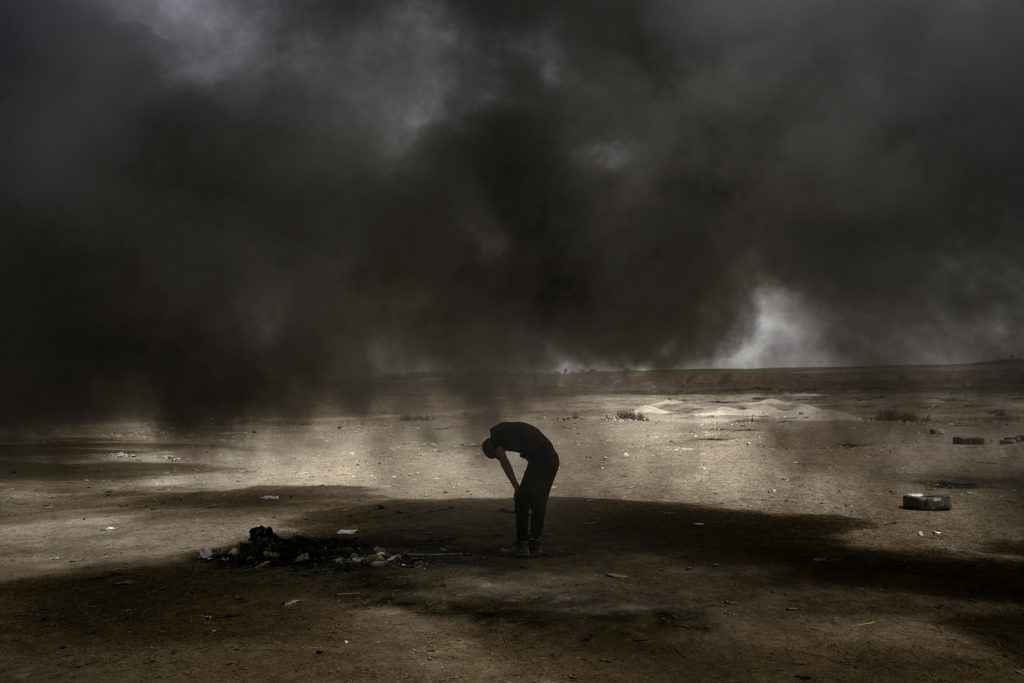
“Great March of Return” protests, Gaza Strip April 2018. ©Fabio Bucciarelli
Fiorenzo Omenetto
Frank C. Doble Professor of Engineering, and a Professor of Biomedical Engineering at Tufts University; US
Fiorenzo.Omenetto@tufts.edu
My hopes:
First and foremost, that people come together to get things done. I hope we will start caring, helping, empowering, laughing with one another and not taking each other too seriously. I hope there will be renewed attention to our “infrastructure,” broadly defined to mean the systems, natural and man made, that enable a sustained prosperous, life—rather than things that give temporary pleasure.
My fears:
First and foremost, that people become more polarized, suspicious of one another, and intolerant. That would drive relationships, policies, and the complex dynamics that are needed to sustain a “global” society in perverse, destructive directions.
Unfortunately, Black Mirror has a head start: a planet burning while we are not taking action; governmental accords and commitments that are not implemented; youth movements and middle class strikes that are not followed by pragmatics.
What really worries me?
- Diminished value of education and lack of public appreciation of learning and making mistakes. The result leaves us unprepared to think critically, solve problems or question the validity of prefabricated solutions.
- Pervasive monitoring and loss of privacy, biased information/biased decision making (who controls the AI?).
- Propagation of strange genetics and a new wild age of “hacked evolution.”
- Irreparable damage to the planet and ensuing chaos (famine, blackouts, mass relocation).
- The lack of definition of ethics and morals in a hyper-connected secular world that is going through a technological revolution. What is the “new acceptable” and who defines it?
Alan Stoga
Chairman, Tällberg Foundation; US
alan.stoga@tallbergfoundation.org
If the decade ahead proves to be a linear extension of where we are today, then the world is in for a nasty ten years.
In 2020, democracy and democratic institutions are under assault almost everywhere. Causes and consequences are intertwined: extreme partisanship, the failure of too many societies to deliver on the basic social contract between the governed and the politicians, slow and unequal growth, disruptive technological change, mass migration of people looking for prosperity or—at least—safety, and the intensifying impact of real-time climate change on populations who expected their government could protect them.
For their part, the autocracies aren’t producing better outcomes, even if they are better at suppressing the unhappiness of their citizens (at least in the short run).
But, systemic change is never linear; the world of 2030 will likely be either dramatically better or dramatically worse than today.
- If we are touched “by the better angels of our nature,” we could begin working towards a world defined by our common humanity, rather than our differences, and leverage the stunning potential of scientific and technological innovation to transform the human condition, not just for the wealthy, but for everyone.
- If we allow ourselves to be consumed by the Furies that have already been unleashed, than the next years are likely to be characterized by increasing nationalism, the breakup of the global order, beggar thy neighbor economics, and increasing swaths of the planet unfit for man or beast.
Can we, individually, make a difference? Of course. But only if we follow Churchill’s advice: “Every man should ask himself each day whether he is not too readily accepting negative solutions.”
Nikos Xydakis
Journalist and Former Minister; Greece
nikoxy@gmail.com
National and global agendas will be dominated by inequalities, climate change, refugee and migratory flows, crisis of democracy and representation. All of these factors are in constant interaction, often with unexpected results.
Global issues have become of high national, even local, interest. Nevertheless, national governments, almost blinded by the agony of electoral dominance, do not cooperate transnationally; instead, they promote agendas of nationalism, populism and isolation—all doomed to fail. In terms of geopolitics, the result is disruption. In terms of national politics, the result is massive deception and demagogy.
Deeper complications will arise from the interactions of these global issues with the emerging new technological environment. Robotics, bioengineering, neurosciences and big data manipulation are fated to influence collective and individual consciences faster than we thought.
Transformations will be profound in the nature of work as well as of human relation to nature and to time. New social formations and new representations are already emerging; perhaps, a new anthropology.
We are already witnessing two parallel developments:
- In the Western world, we see the rapid decline of the middle class, which is causing massive frustration and a disgust for democracy. It is perceived as a defeat of Kant’s promise for eternal peace, and the defeat of the modern promise of eternal growth. This outraged frustration leads declining middle classes to ‘paradoxical’ political behaviors, reminiscent of Interwar era: the shift to the far right, nationalism, xenophobia, and hostility to tolerant and inclusive democracy. The irony is that neither autocracy nor hatred can provide comfort for the failures of democracy.
- In the developing world, we see the formation of middle classes that demand the consumer benefits they see/imagine/saw in the West, while at the same time large groups of people are deprived of basic living conditions. Both of these groups, rising and excluded, have as anthropological models a continuous streaming of ideotypes and lifestyles from Western servers; perhaps that streaming has more charm in the new world than in the lands of origin.
Rafa Yuste
Neuroscientist, Columbia University; inspirer of the US Brain Initiative; USA and Spain
rafaelyuste@columbia.edu
I think the next decade will bring the flourishing of neurotechnology. This could have a profound effect on humanity, as we start to decipher the mechanisms of mental and cognitive processes of humans and of laboratory animals.
This will be transformative. It should lead to a deeper understanding of whom we are as a species, and help to diagnosis and treat mental and neurological diseases. Accompanying this revolution, I expect that the development of neurotechnology will enable non-invasive brain computer interfaces, which will become the workhorses of the tech industry. Just like the iPhone changed our lives in the last decade, I expect that by 2030 we will all be wearing brain computer interfaces that will enable high bandwidth online connection to databases and algorithms that will transform the human experience for the better.
I am excited to live in this time in history. I think it will be a new renaissance.

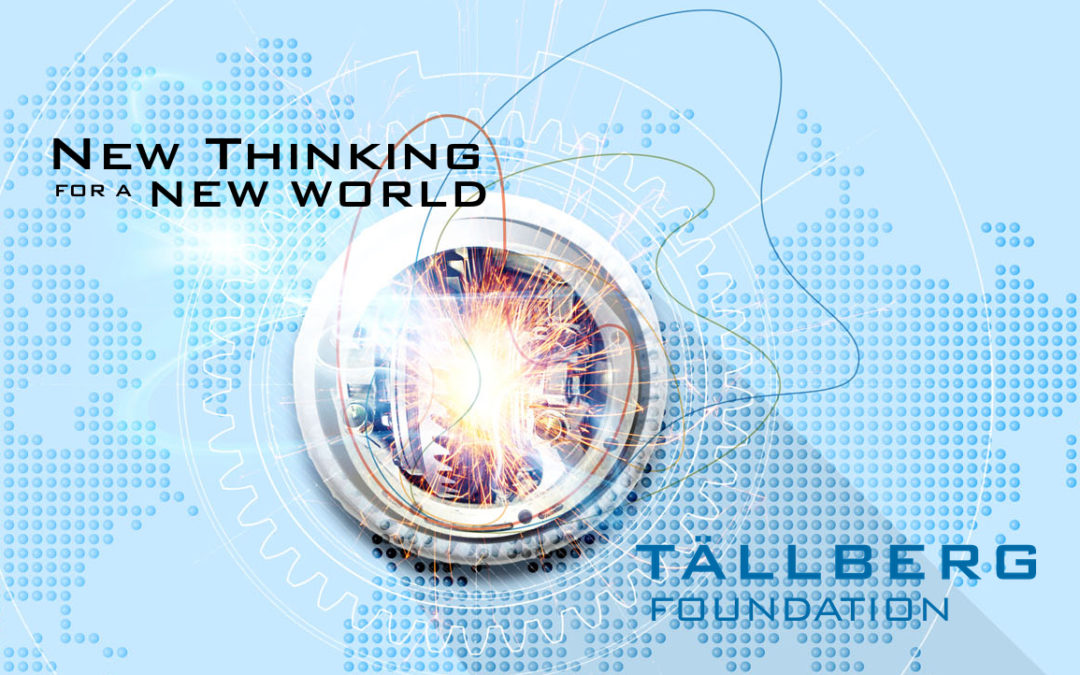
I experience daily in my work most of the fears stated above by Defne, Battaglini, Cuevas, Desai, Perna, Eliasson, Griffith, Heller, Koets, Niconschuk, Knight, Omenetto, and Stoga, Xydakis. There is here no need for me to add to the list. I do see hope in some of the comments but none that are fundamental and radical. We need a fundamental (domino concept) and radical approach to deal globally with all these fears to bring about hope/respect/sharing/trust, etc. This radical approach has been developed by the Swiss Development Dooperation about 30 years ago ( and no, I am not Swiss). It involves the training needed to acquire cross-cultural abilities. When one can engage with change/diversity/newwork/technology/different values without fears or violence, we will be in a position to shape a more human 2020 (and eventually make it as a species). The radical aspect of this comes from the fact that we have to bring the acquisition of these competencies to all, the same way that we acknowledge worldwide the need to acquire mathematics and languages, the same is true about the capacity to engage with the diversity brought by an exponentially increasing globalization. The alternative is the long litany of ‘isms that we are now experiencing worldwide (Sexism, nationalism, populism, generationalism, believism, etc) . And yes it is not only possible it is fundamental that we get to it. Just ask Paulo Freire.
The future of feminism
I HOPE
….a Cyber World with connective and ubiquitous EMPATHY, for the new decade, “THE CLICKING DECADE”, and just like Lenon ;….
Imagine there’s no heaven
It’s easy if you try
No hell below us
Above us only sky
Imagine all the people
Living for today
Imagine there’s no countries
It isn’t hard to do
Nothing to kill or die for
And no religion too
Imagine all the people
Living life in peace
You may say, I’m a dreamer
But I’m not the only one
I hope someday you’ll join us
And the world will be as one……
…that “clicking” saves lives, that the immediacy of information includes people, nations, states, cultures and ideas …
MY FEAR:
may world leaders forget that they were children …..
forget about the children ….
forget about hunger ……
forget the Windmills ….
that forget to be quixotic…
who forget that they are human ….
forget that death comes to all …
forget that we can be happy …
UNTIL 2030
Rapid development among fees
Selective industrialisation will soar
Purchasing power will fluctuate
Developed countries will face stiff competition to maintain
Developing countries will face pressure of Middle Class
Underdeveloped countries will develop on support of developed
But developed countries will not get much profit out of
Almost all countries will go for militarisation
Any time any countries can go for war
Military super power must stop retaliate for future shake of world
Science ,literature will flourish technologically
Morally world will develop to a certain extent
Honest, transparent, dynamic leader will struggle to rule the nation
Expectation of masses will rise , that leaders will not be able to meet up
Artificial meat will boom, many traditional meat will be costlier
Agriculture will be on buildings,
Organic vegetables will be of great demand
Unemployeds will not wait for Government to get funds
Education System will be revolutioised to wires or in home
Small companies will come like a bang with new technology
That will rule the world with new scope of economic proliferation
Individual development will be replaced by Self Help Group development
Food habbits will be changed for dearth of food for natural calamities
Extreme climate will reign the world
So floods, scorching heat, storms , fires will spread
Sea water will rise up, so low lying will find sea creeping to conquer one day
Mass migration will start resulting destabilization of Government
International Organisations will need much support otherwise will be neglected
New need of International Organisation will come up
Terrorism will often disturb to any nation
But they will be curbed though they will try to destabilise whole world
Fossil fuels vehicle will be replaced by battery , solar powered vehicles
Drone vehicles will come up for individuals
Temperature will be higher to bear so many mortalities
Corruption will be lessened in developing countries for changing mindset
Tea business will battle to survive
More climate activists will come to show their concern
Space explorations will continue to space tourism
Tourism sector will be boom as it needs less environment
Individual skill powers will improve but not income
Robot will take space in home to agrifield to battle field
Water scarcity will affect many urban areas to meet the demand
Prices of essential commodities will scale up
So disturbances like thief, robbery will grow despite police administration
Depression will grow so many will resort to meditation
However , new generation will not be strong as predecessors
For they will not go for regular exercise or breather in open air
Despite all, massive for drastic invention of technologies will light up idea
To think to go to other planet , star for any inevitable danger on Blue planet
But , not much fear till 2030 , but all to maintain
Controlled mindset even in high stressful situation
World will be peaceful that all in our hand
Only one need to accept changes especially attitude.
Damodar Boruah, Author BORN TO DO BIG, India
While we think of both the positive and negative for the world, I can only speak for my country- the Philippines. I will expect that we can re-unify as One People, One Nation, re-strengthen our educational system and create more practical examples based in the Filipino context, lessen our cultural biases and judgments so that we can study on how we can understand and control the effects of natural disasters happening in the land (typhoons, floods and effects of earthquakes), elect strong leaders to better our situation. I see a Philippines where decisions are made by People not by systems and devices; I see a country where it has become richer because of the efforts of all not by the few…I am hopeful for the next decade that it will bring betterment and alleviation of the Filipino suffering!
The world population is increasing every seconds, its a big question to understand from where these extra soul came from? Increasing population of humans making them to fight with them self on some broad causes like for hunger and sexual pleasure, to make money , to get apparent success, to rule over others. These fights depleting humans energy, even below to the others animals presents on this planet. Consequently, animals souls taking birth every seconds and human souls due to lower energy becoming animals according to their energy level. Before nature or universe press its reset button we should press pause button on population control.